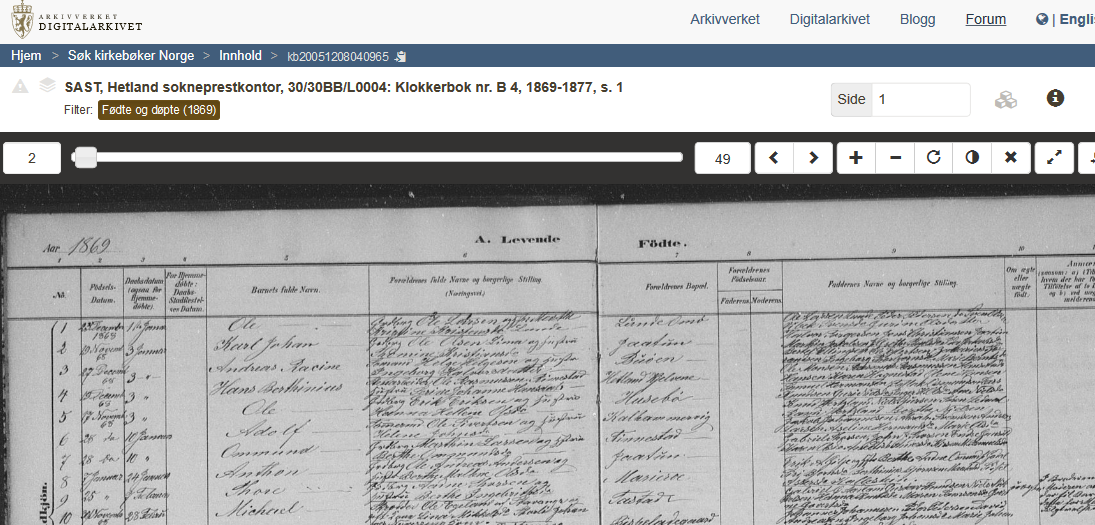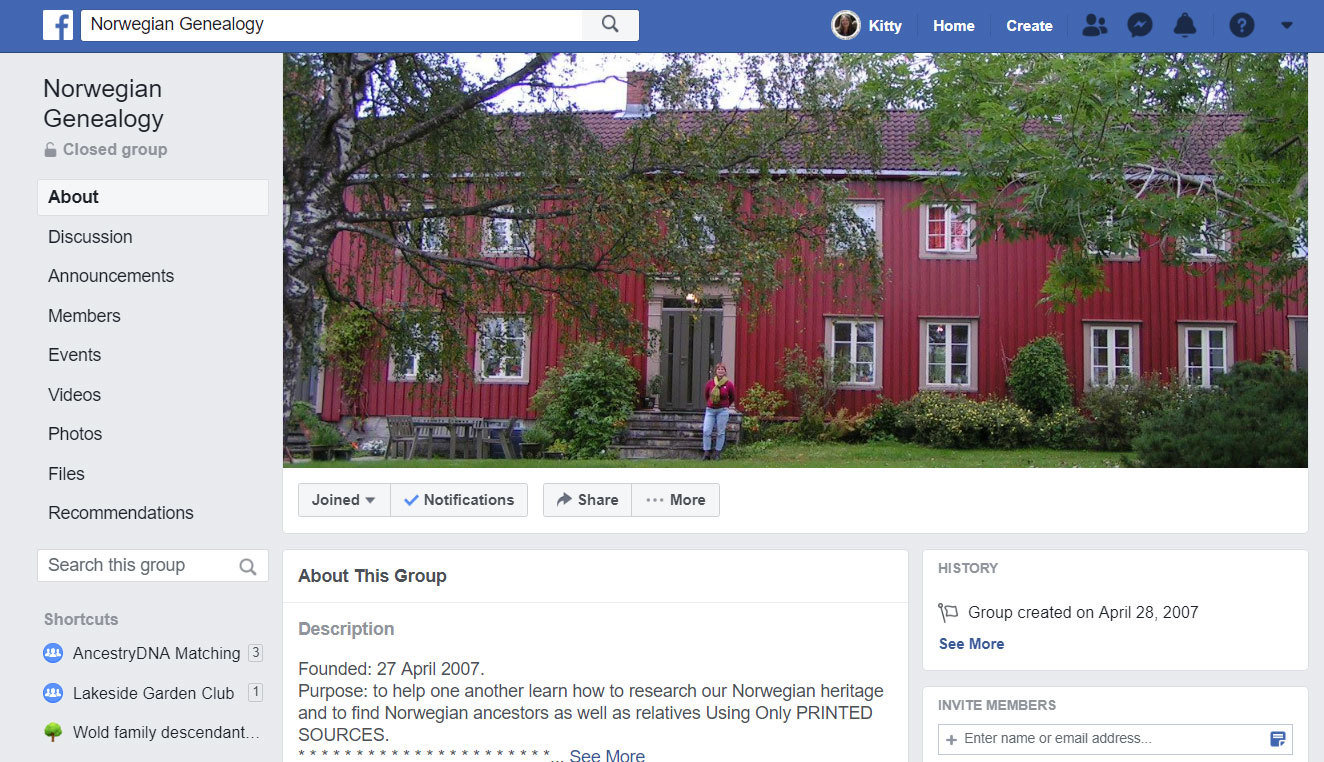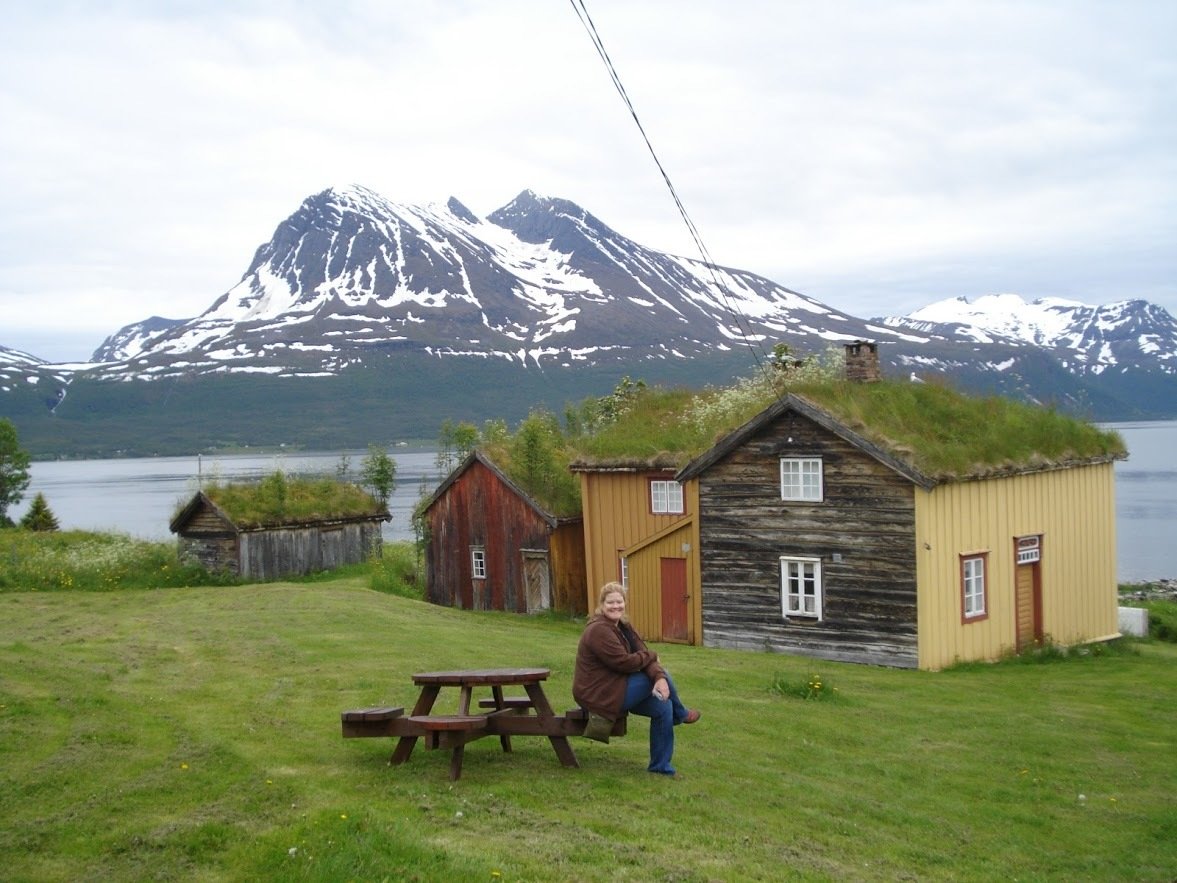My slides are always online at
Crossing the Atlantic to Norway
Kitty Munson Cooper blog.kittycooper.com
Norwegian Naming Rules
For example: Lars Olsen Tveit is the son of Ole and lives on farm Tveit. His first son would be named Ole Larsen Tveit
People were known by their father's name and farm name, there were no fixed surnames until the late 1800s
In America, our ancestors usually chose either the anglicized version of the farm name or patronymic: so Johnson, Olson, Larson,etc. Else perhaps Tweed from Tweit, Holland from Halland, Chally from Tjelle, etc
However, my great grandad Hans Halvorsen Skjold chose to be called by Henry H Lee in the USA !!

Norwegian Naming Rules
The first son and daughter were named for the father and mother of the husband
There were also conventions for choosing first names
The second son and daughter were named for the parents of the wife

photo of Anna Halvarsdatter Skjold (later Stevenson) - sister of my grandad - daughter of Halvard, farm Skjold
Some exceptions, if the first spouse died the first child if that sex in the second marriage is named for them
Excerpt from the Etne farm book for farm Tveito showing this naming pattern


Sometimes the first daughter is named for the mother's mother; names of people who died tragically are not reused ... no Peder!
Another pattern is to use a more modern or American name that starts with the same letter
Knowing the naming patterns can help when deciding which Norwegian Ole Olsen married to Anna is yours!
Do you know where in Norway your ancestors came from?

This map is from
https://www.familysearch.org/wiki/en/File:Norway_County_Map2.jpg
How to find out where in Norway they came from ...
The ship's manifest
The full marriage record
A naturalization record
The surname if an unusual farm name


My great grandad's brother's marriage record from the NYC Municipal archives
The New York City Municipal archives on Chambers St:
https://www1.nyc.gov/site/records/about/municipal-archives.page
Many Norwegian immigrants came to Brooklyn. Those NYC records are indexed on:
The NY Italian SIG: https://italiangen.org/databases/
Full marriage records usually require going to the courthouse or paying them to send you the record. Several sites index many of those:
What if you only have a name?
Look in the US census records and find other family members' names as well
The 1900, 1910, and 1920 censuses have a date of immigration
You can use the Steve Morse site to search the US immigration records

Many Norwegians came to the midwest via Canada - this web site has those too

An unusual surname? Look it up as a farm name
Looking for Andrew Ueland, born 1869 in Norway


There is an online form that uses the series compiled by Olaf Rygh to do a look up
Looking for Andrew Ueland, born 1869 in Norway

All the Ueland farms are in the Stavanger area!
Once you know where in Norway, you can use the free online Norwegian archives









We found an Anders Larson Ueland
So that means his first son will be Lars? Or an americanized version
The farm names as surnames are most often seen in census records but not in birth or marriage records

Remember to click on residents to see who else lived there
Text


Usually the census will tell us the family postion, the head of household (huusfader), his wife (hans Kone), his children (hans Søn, hans Datter)

Here are my great-grand parents with family position shown.
Note the g for gifte is married and ug is unmarried

Notice that the Anders we found had a mother named Berte so look at the name of his first daughter!
And of course we saw before that the name of his first son Lawrence corresponds to his father Lars

Census record for my great great grandparents with the Family Position
note also the marital status: "g" is for gift or married while "ug" is unmarried
many more are listed at
https://www.familysearch.org/wiki/en/Norwegian_Genealogical_Word_List
født
døpt
døde
gift
born
born
baptized
died
married
child
Some key Norwegian words to know
There are a number of search tips and techniques explained at http://blog.kittycooper.com/2014/02/searching-the-norwegian-digital-archives-a-rootstech-talk/

Next let's find the birth record for Anders
Not all birth records are indexed and he would be under Anders Larsen if they were.
Best browse through the parish records for 1869 in Hetland

So we will use the find source function at the digital archives, available on the home page or at the top of any page



We select the period from 1869 to 1900, all churchbook records in Vestlandet, Rogaland, Hetland

Clicking on browse underneath a source name takes us to the first page of that church book.
I recommend having a copy of my cousin's guide to reading the churchbooks handy for this part, https://blog.kittycooper.com/wp-content/uploads/delightful-downloads/2014/12/Reading-the-Churchbooks.pdf
When starting at too early a year, you can use the top slider to get to the right year and then use the < > to go page by page.




Once you know what farm your ancestors came from, you may be able to go back many generations if there are farm books or Bygdebøker for that area
These books list every family who lived on each farm with cross references to other farms

The Catalog at FamilySearch.org lists all the farmbooks they own (most of them!)
put your locality into the search box and it will complete it, then click Search


Click on Etne-soga and get all the information to find the book in the Family History Library
You will also get a link to this book in the WorldCat to find other libraries that have it

Scroll down the page at WorldCat to see the libraries which have it

excerpt for Skjold farm

Sadly very few of these farmbooks are available online (unless you are in Norway). Try this listing
http://martinroe.com/blog/index.php/2017/01/31/bygdeboker-available-online/

The facebook group Norwegian Genealogy has many members who will help with look ups and advice: https://www.facebook.com/groups/NorwegianGenealogy/
Here is the link to my blog post about the Ueland case
http://blog.kittycooper.com/2017/10/finding-your-immigrant-ancestor-in-norway/
and another case, Finding Matilda

To Summarize:
- find your ancestor's place of origin
- search the records for him in that year (plus or minus a few years) in the Norwegian online archives
- use the family naming patterns to confirm that you have the right person

QUESTIONS?
Crossing the Atlantic to Norway
By Kitty Cooper
Crossing the Atlantic to Norway
How to trace your Norwegian immigrant ancestor from America back to Norway
- 4,471



